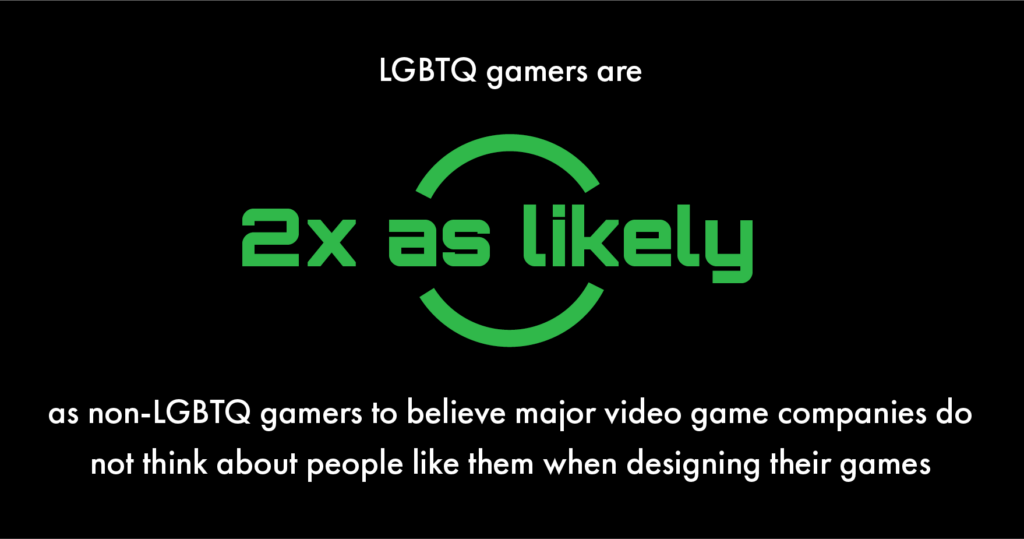Most Gamers Do NOT Think the Game Industry Thinks about People Like Them
A minority of both LGBTQ and non-LGBTQ gamers believe major video game companies think about people like them when designing their games (27% of LGBTQ gamers and 38% of non-LGBTQ gamers). Further, nearly double the percentage of LGBTQ gamers (29%) think the game industry does not think about people like them, compared to non-LGBTQ gamers (15%). Relatedly, 48% of LGBTQ gamers feel more represented in indie games created by small teams than in mainstream games created by large companies, while only 28% of non-LGBTQ gamers feel that way.
Interestingly, there is a relationship between those who spend more money on games each month and those who feel like the game industry thinks about people like them and feel welcome in the gaming community. Although only a minority of gamers believe game companies think about people like them when designing their games (36%), 47% of high spenders do. Similarly, 74% of high spenders feel the gaming community is welcoming, compared to 58% of gamers overall. By creating a more welcoming environment for LGBTQ gamers, where they feel represented, game companies can increase the possibility that such gamers will spend even more money on games than they do already.













